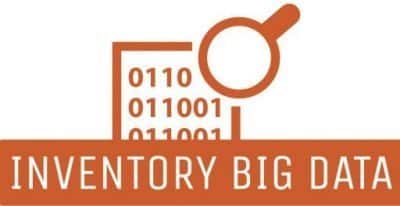Description
Julia is a data manager. She is at the crossroads of IT, business strategy and statistics. Her main role is to classify and organize the company’s information and data so as to make it more understandable to everyone.
Who is Julia?
Julia is a bright and ambitious young woman who has always been interested in technology and data analysis. She has always been a top student in her classes and has always excelled at problem-solving and critical thinking. So when she was offered the opportunity to lead the data department at a large manufacturer, she jumped at the chance.
As the head of the data department, Julia was responsible for analyzing the company’s data and using it to make informed decisions about the business. She worked closely with the rest of the team to develop and implement data-driven strategies that would help the company improve its operations and increase its profitability.
Julia was passionate about her work and spent long hours at the office, analyzing data and developing new ways to use it to drive the business forward. She was always willing to go the extra mile to ensure that the company was using its data to its full potential.
Over time, Julia’s hard work and dedication paid off. The company began to see significant improvements in its operations, and Julia’s team was credited with driving much of this success. Julia was proud of the work she and her team had done, and she knew that their efforts had made a real difference for the company.
As the years passed, Julia continued to excel in her role, and she became known as an expert in the field of data analysis. She was frequently invited to speak at conferences and workshops, and her insights and expertise were highly sought after by other companies and organizations.
Despite the demands of her job, Julia always made time for her personal life, and she loved spending time with her family and friends. She knew that a healthy work-life balance was important, and she made sure to take breaks and relax when she needed to.
In the end, Julia’s hard work and dedication paid off, and she became a respected and successful leader in her field. She was proud of the impact she had made on the company and the difference she had made in the lives of her colleagues.
Meeting routines
Revolutionizing Data Management with the Data Factory Box
Julia: Hey, how can I help you today?
Maria: Hi Julia, I wanted to talk to you about a data management issue we’ve been experiencing. It’s been taking a lot of time and resources to collect data from each of our industrial sites, and it’s been difficult to ensure the data is accurate and reliable.
Julia: Yes, collecting and managing data can be a complex task, especially when dealing with large volumes of data. However, we’ve recently implemented a solution called the Data Factory Box that automates the data collection process at each site.
Maria: That sounds interesting. Can you tell me more about it?
Julia: Sure. The Data Factory Box is a system that collects data in real-time from each industrial site, regardless of location or format. It automatically integrates the data into our centralized database and applies data quality checks to ensure accuracy and reliability.
Maria: Wow, that sounds like it could save us a lot of time and resources. How does it work?
Julia: The Data Factory Box uses a combination of sensors and IoT devices to collect data from various sources at each industrial site. The data is then processed and analyzed using artificial intelligence and machine learning algorithms, which can identify trends and patterns that may not be immediately apparent to humans.
Maria: That sounds like a game-changer for our data management strategy. Thanks for sharing this with me, Julia.
Julia: No problem, happy to help. We’re always looking for ways to improve our data management processes, and the Data Factory Box has been a great solution for us so far.
FAQ
Q: What is the role of a Data Manager?
- A: The role of a Data Manager is to oversee the collection, storage, processing, and analysis of data to ensure accuracy, security, and reliability. They are responsible for developing and implementing data management strategies and ensuring compliance with data protection laws and regulations.
Q: What skills are required to become a Data Manager?
- A: The skills required to become a Data Manager include a strong understanding of data management principles, experience with data analytics and visualization tools, proficiency in programming languages such as SQL and Python, and excellent communication and problem-solving skills.
Q: What is the importance of data quality in data management?
- A: Data quality is critical in data management as inaccurate or incomplete data can lead to incorrect analysis and decision-making, which can have a negative impact on the organization’s performance. Ensuring data quality involves data cleaning, standardization, and validation.
Q: What are some common challenges faced by Data Managers?
- A: Common challenges faced by Data Managers include managing large volumes of data, ensuring data security and privacy, dealing with data quality issues, implementing new technologies, and staying up-to-date with the latest data management best practices.
Q: What are some tools and technologies used by Data Managers?
- A: Data Managers use a variety of tools and technologies, including data analytics and visualization software, data management systems, programming languages, cloud computing platforms, and machine learning and artificial intelligence algorithms.
Q: What is the difference between a Data Manager and a Data Scientist?
- A: While both roles involve working with data, the primary focus of a Data Manager is on the management and organization of data, while a Data Scientist is focused on analyzing and modeling data to uncover insights and patterns.
Q: How do Data Managers ensure data security and compliance with regulations?
- A: Data Managers ensure data security and compliance with regulations by implementing data protection measures such as encryption, access controls, and data backup and recovery systems. They also stay up-to-date with the latest data protection laws and regulations and ensure that the organization is compliant with these regulations.






